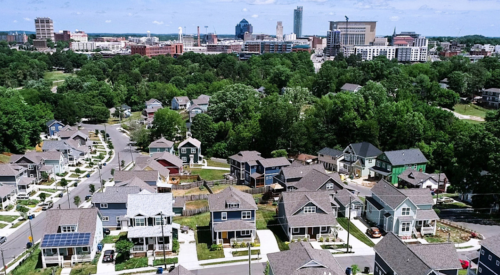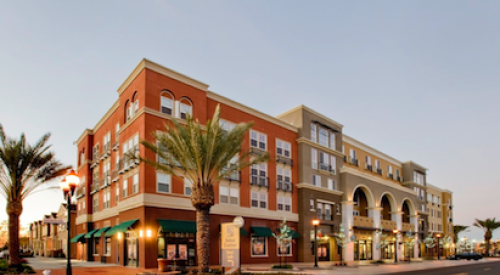Five hundred registered voters from each of the metropolitan areas of Denver, Atlanta, San Diego, Washington, D.C., and Minneapolis-St. Paul expressed strong concern about the fast pace of residential growth as well as the issues of additional school funding and increased automobile traffic. Respondents to the survey, however, laid responsibility for remedies to these issues at the feet government officials. Specifically, that they should respond with less regulation and more broad-based funding.
"These survey results bring clarity to the issue and help define public preferences and expectations," says NAHB vice president and secretary Gary Garczynski. "We want to take the survey data to local governments and work with them to solve growth issues."
The survey found that more than half of the respondents in all five metro areas thought government should "make sure" that schools, roads and other services are adequately supported in places "where people want to live." Less than a third took the opposite view in favor of direct regulation of where growth should occur.
Investment Over Regulation
A separate but related question found very strong support for the idea that instead of regulating growth to occur near existing transportation, government should provide an inducement for people to live in existing neighborhoods with established transportation infrastructure. Nearly 70% of the respondents said they would prefer seeing government "invest" more into older neighborhoods as a way of revitalizing them. Less than 20% of the respondents favored the opposite approach of limiting new-home construction on the outskirts of town (away from existing train lines and high volume roadways) as a way to force people to buy homes in existing areas.
Everyone Should Pay
The question of how to pay for new schools and upgrades to existing schools also yielded important information. With the exception of the registered voters surveyed in the Minneapolis-St. Paul area, a majority of the respondents felt that state, federal and local governments should each supply more funds to solve this problem.
More than half the respondents in Denver, San Diego, Atlanta, and Washington favored more spending by all levels of government for school construction. Less than 30% of the respondents in Minneapolis-St. Paul deemed additional government funding for school construction necessary.
An important corollary to the school-funding question was the feeling registered by respondents against the use of new-home impact fees to fund schools, infrastructure and other services. Questions on the issue found very strong support for the notion that "everyone pays."
Approximately one quarter of the respondents felt that new-home owners should pay for building and improving schools, while a range of between 9% and 17% of respondents in the five metropolitan areas surveyed thought new residents should pay for future transportation improvements.
New-Community Benefits
Respondents also revealed a strong preference for a feature found in most new home communities: plenty of open space. Only about 10% percent gave open space for parks a low priority, while it remained a very high priority with between 42% and 52% of respondents.
Officially known as the 1999 Metropolitan Area Growth Issues Survey, the results are expected to be of benefit to builders nationwide, particularly where the industry is encountering strong anti-growth opposition. "I think the message for builders is that they have to take into account the needs of the city overall," says Atlanta HBA president Tom Falik.












